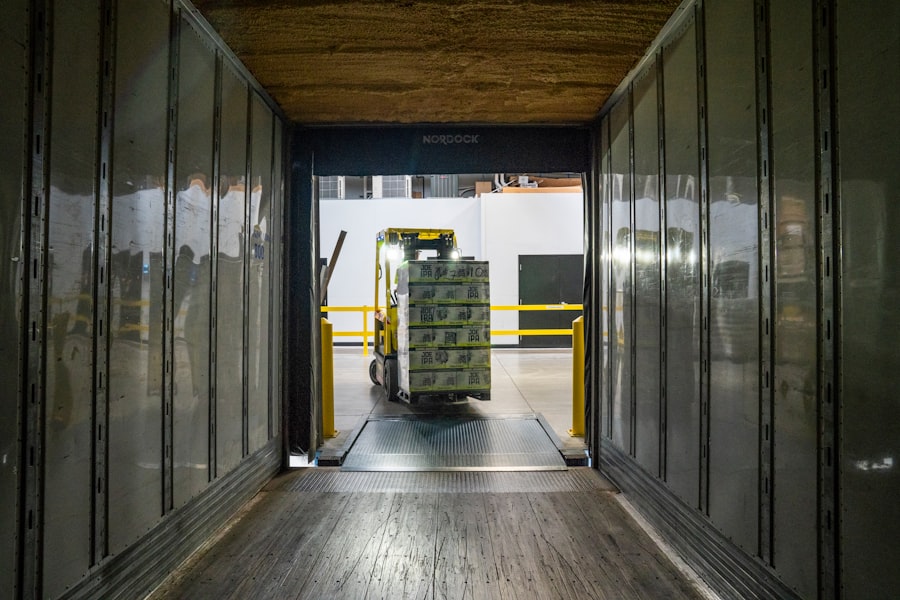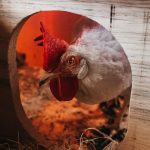The natural egg-laying cycle of chickens is influenced by several factors, including age, breed, and environmental conditions. Typically, hens start laying eggs around 5-6 months of age, although this can vary depending on the breed. In the beginning, hens may lay eggs sporadically as their reproductive systems mature.
As they reach peak laying age, usually around 1-2 years old, hens will lay eggs consistently, with peak production occurring in the spring and summer months. As hens age, their egg production will gradually decline, eventually ceasing altogether. It’s important for chicken keepers to understand the natural egg-laying cycle in order to manage their flock effectively.
By knowing when to expect peak production and when to anticipate a decline, keepers can make informed decisions about nutrition, lighting, and other factors that can impact egg production. Additionally, understanding the natural cycle can help keepers identify potential health issues or stressors that may be affecting their hens’ ability to lay eggs consistently. Understanding the natural egg-laying cycle also allows keepers to plan for the future, whether that means introducing new hens to the flock to maintain consistent production or making adjustments to the coop environment to accommodate older hens.
By working with the natural instincts of their chickens, keepers can create a more harmonious and productive environment for their flock.
Table of Contents
- 1 Providing the right nutrition for consistent egg production
- 2 Maintaining a comfortable and clean coop environment
- 3 Managing light exposure to stimulate egg laying
- 4 Monitoring and addressing health issues that can impact egg production
- 5 Incorporating supplemental heat during colder months
- 6 Implementing strategies to reduce stress and encourage natural behaviors
- 7 FAQs
- 7.1 What are the factors that affect a chicken’s egg production?
- 7.2 How can I keep my chickens laying eggs year round?
- 7.3 What should I feed my chickens to encourage year-round egg production?
- 7.4 How much light do chickens need to keep laying eggs in the winter?
- 7.5 What are some common health issues that can affect a chicken’s egg production?
Key Takeaways
- Hens naturally follow a 24-26 hour egg-laying cycle, with peak production in the morning.
- A balanced diet with adequate protein, calcium, and essential nutrients is crucial for consistent egg production.
- Regular cleaning, proper ventilation, and comfortable nesting areas are essential for a healthy coop environment.
- Manipulating light exposure can stimulate egg laying, with 14-16 hours of light per day being ideal.
- Regular health checks, parasite control, and prompt treatment of illnesses are crucial for maintaining egg production.
- Supplemental heat may be necessary in colder months to ensure hens continue laying eggs.
- Reducing stress, providing enrichment, and allowing natural behaviors like dust bathing can encourage consistent egg production.
Providing the right nutrition for consistent egg production
Layer Feed: The Foundation of a Balanced Diet
Layer feed is specially formulated to provide the optimal levels of protein, calcium, and other essential nutrients that hens need to lay eggs consistently.
Additional Nutritional Considerations
In addition to layer feed, hens should have access to fresh water at all times, as dehydration can negatively impact egg production. Supplemental treats such as fruits, vegetables, and mealworms can also be given to hens in moderation to provide additional nutrients and variety in their diet. However, it’s important to avoid overfeeding treats, as this can lead to nutritional imbalances and obesity, which can both affect egg production.
Free-Range Foraging and Monitoring Body Condition
Additionally, providing access to free-range foraging can allow hens to supplement their diet with insects and vegetation, further supporting their overall health and egg-laying capabilities. In addition to providing the right nutrition, it’s important for chicken keepers to monitor their hens’ body condition and adjust their diet as needed. Hens that are underweight or overweight may experience disruptions in their egg-laying cycle, so it’s important to ensure that each hen is receiving the appropriate amount of food for their individual needs.
By prioritizing proper nutrition, keepers can support consistent egg production and overall health in their flock.
Maintaining a comfortable and clean coop environment

Creating a comfortable and clean coop environment is essential for supporting consistent egg production in chickens. A well-designed coop should provide adequate space for the flock, good ventilation to prevent moisture buildup and ammonia levels, and protection from predators and the elements. Additionally, coop bedding should be kept clean and dry to prevent bacterial and fungal growth, which can lead to respiratory issues and other health problems in hens.
Regular coop maintenance, including cleaning and replacing bedding, removing droppings, and checking for signs of pests or mold, is crucial for creating a healthy environment for hens. By keeping the coop clean and well-maintained, chicken keepers can reduce stress on their flock and minimize the risk of disease or infection that could impact egg production. In addition to cleanliness, providing comfortable roosting and nesting areas is important for encouraging natural behaviors in hens and supporting their reproductive health.
Nesting boxes should be filled with clean bedding and located in a quiet, secluded area of the coop to provide hens with a safe and comfortable space to lay their eggs. Roosting bars should be positioned at an appropriate height and spaced to accommodate the size of the flock, allowing hens to perch comfortably at night. By prioritizing a comfortable and clean coop environment, chicken keepers can create a space where their hens feel safe, secure, and healthy, which in turn supports consistent egg production and overall well-being in the flock.
Managing light exposure to stimulate egg laying
Light exposure plays a significant role in stimulating egg laying in chickens. Hens are naturally inclined to lay eggs when daylight hours are longer, typically in the spring and summer months. As daylight hours decrease in the fall and winter, hens may experience a decline in egg production or cease laying altogether.
To mitigate this natural response, chicken keepers can use artificial lighting to supplement daylight hours and encourage consistent egg production throughout the year. By providing 14-16 hours of light per day in the coop using artificial lighting, keepers can simulate longer daylight hours and encourage hens to continue laying eggs even during the darker months. It’s important to gradually increase or decrease light exposure to mimic the natural changes in daylight hours, as sudden changes can stress hens and disrupt their egg-laying cycle.
In addition to managing light exposure in the coop, it’s important for hens to have access to natural sunlight during the day. Allowing hens to spend time outdoors in a secure run or free-range environment not only provides them with essential sunlight exposure but also supports their overall health and well-being. Natural sunlight helps regulate hens’ circadian rhythms and can positively impact their mood, behavior, and reproductive function.
By carefully managing light exposure both indoors and outdoors, chicken keepers can support consistent egg production in their flock while also promoting the natural behaviors and instincts of their hens.
Monitoring and addressing health issues that can impact egg production
Maintaining good health is crucial for supporting consistent egg production in chickens. Hens that are experiencing health issues may lay fewer eggs or stop laying altogether as their bodies prioritize healing and recovery. Common health issues that can impact egg production include respiratory infections, parasites, nutritional deficiencies, reproductive disorders, and injuries.
Regular health checks and monitoring of individual hens’ behavior and physical condition are essential for identifying potential health issues early on. Keepers should be familiar with the normal behavior and appearance of their flock so that they can quickly recognize any changes that may indicate a health problem. Additionally, providing a well-balanced diet, clean water, and a comfortable coop environment can help prevent many common health issues from arising.
If a health issue is suspected, it’s important for chicken keepers to consult with a veterinarian who specializes in poultry care. A veterinarian can provide a proper diagnosis and recommend appropriate treatment options to address the specific health issue affecting the flock. By addressing health issues promptly and effectively, keepers can support their hens’ overall well-being and encourage consistent egg production.
In addition to proactive health monitoring, implementing biosecurity measures can help prevent the spread of disease within the flock. This includes quarantining new birds before introducing them to the existing flock, practicing good hygiene when handling chickens or their equipment, and limiting exposure to wild birds or other potential carriers of disease. By prioritizing good health management practices, chicken keepers can create a supportive environment for consistent egg production in their flock.
Incorporating supplemental heat during colder months

Safe Heating Sources
When incorporating supplemental heat in the coop, it’s essential to use safe heating sources designed specifically for poultry. Heat lamps or radiant heaters should be securely installed to prevent fire hazards or accidental contact with hens. Regular temperature monitoring is also crucial to ensure the coop remains within a comfortable range for the flock.
Protecting the Flock from Cold Temperatures
In addition to providing supplemental heat, chicken keepers should take steps to protect their flock from drafts and moisture that can exacerbate cold temperatures. This includes sealing gaps in the coop walls or windows, insulating the coop if necessary, and ensuring that bedding remains dry and clean. By creating a warm and draft-free environment, keepers can support consistent egg production even during the coldest months.
Safety Precautions
Chicken keepers should be mindful of potential safety hazards associated with supplemental heat in the coop. This includes regularly checking heating equipment for signs of wear or damage, keeping electrical cords out of reach of hens, and following manufacturer recommendations for safe operation of heating devices. By incorporating supplemental heat responsibly and effectively, keepers can create a comfortable environment that supports consistent egg production in their flock.
Implementing strategies to reduce stress and encourage natural behaviors
Reducing stress and encouraging natural behaviors is essential for supporting consistent egg production in chickens. Hens that are stressed or anxious may experience disruptions in their reproductive function, leading to decreased egg production or irregular laying patterns. By creating a calm and enriching environment for their flock, chicken keepers can help hens feel secure and content, which in turn supports consistent egg production.
One effective strategy for reducing stress in chickens is providing ample space both inside the coop and in outdoor runs or free-range areas. Overcrowding can lead to aggression among hens and increased stress levels, so it’s important for keepers to ensure that each hen has enough space to move freely and engage in natural behaviors such as dust bathing and foraging. Additionally, providing environmental enrichment such as perches, dust bathing areas, and toys can help alleviate boredom and reduce stress in hens.
These enriching activities allow hens to engage in natural behaviors that promote mental stimulation and physical exercise, contributing to overall well-being and reproductive health. Another important aspect of reducing stress is minimizing disruptions in the coop environment. Loud noises, sudden movements, or changes in routine can all cause stress in hens, so it’s important for keepers to maintain a calm and predictable environment for their flock.
This includes handling hens gently and respectfully, avoiding unnecessary disturbances during resting or nesting times, and gradually introducing any changes or new additions to the flock. By implementing strategies to reduce stress and encourage natural behaviors, chicken keepers can create an environment where their hens feel safe, secure, and content. This supportive environment not only promotes overall well-being but also supports consistent egg production in the flock.
If you’re interested in learning more about how to keep chickens laying year round, you may also want to check out this article on how many eggs do geese lay. Understanding the egg-laying habits of geese can provide valuable insights into the factors that influence egg production in poultry.
FAQs
What are the factors that affect a chicken’s egg production?
Some factors that can affect a chicken’s egg production include age, breed, nutrition, daylight hours, stress, and health.
How can I keep my chickens laying eggs year round?
To keep chickens laying eggs year round, you can provide a balanced diet, ensure they have access to clean water, provide adequate lighting in the coop during the winter months, and minimize stress in the flock.
What should I feed my chickens to encourage year-round egg production?
To encourage year-round egg production, you should feed your chickens a balanced diet that includes a high-quality layer feed, as well as access to fresh greens, calcium supplements, and occasional treats like mealworms.
How much light do chickens need to keep laying eggs in the winter?
Chickens need about 14-16 hours of light per day to keep laying eggs in the winter. If natural daylight is insufficient, you can supplement with artificial lighting in the coop.
What are some common health issues that can affect a chicken’s egg production?
Common health issues that can affect a chicken’s egg production include parasites, respiratory infections, reproductive disorders, and nutritional deficiencies. Regular health checks and proper care can help prevent these issues.
Meet Walter, the feathered-friend fanatic of Florida! Nestled in the sunshine state, Walter struts through life with his feathered companions, clucking his way to happiness. With a coop that’s fancier than a five-star hotel, he’s the Don Juan of the chicken world. When he’s not teaching his hens to do the cha-cha, you’ll find him in a heated debate with his prized rooster, Sir Clucks-a-Lot. Walter’s poultry passion is no yolk; he’s the sunny-side-up guy you never knew you needed in your flock of friends!







